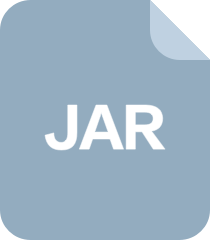**标题与描述解析** 标题"asmack 源码和API文档和jar包"表明了这是一个关于asmack的资源集合,其中包括源代码、API文档以及jar包。这意味着我们可以深入理解asmack的工作原理,并且能够快速地集成和使用它来构建即时通讯系统。 描述中的"有详细的API文档介绍和jar,可以更快的学习利用asmack+xmpp+openfire搭建及时通讯聊天!"揭示了asmack是用于即时通讯的库,特别提到了xmpp协议和openfire服务器。xmpp(Extensible Messaging and Presence Protocol)是一种开放标准的即时通讯协议,而openfire是基于xmpp的服务器软件。通过asmack的API文档和jar包,开发者能够快速学习如何将这三个组件结合,实现聊天功能。 **即时通讯** 即时通讯(Instant Messaging, IM)是一种在线实时交流的方式,允许用户在互联网上进行文本、语音、视频等多种形式的通信。在移动互联网时代,即时通讯已经成为社交应用的核心功能,例如微信、QQ等。 **asmack** asmack是Android平台上对Apache Smack库的优化版本,Smack是一个开源的XMPP客户端库,支持多种Java环境,包括Android。asmack提供了XMPP协议的实现,使得开发者能够在Android设备上轻松创建即时通讯应用。 **XMPP** XMPP是一种基于XML的即时通讯协议,设计用于传输实时数据,包括聊天消息、文件传输、状态更新等。它的特点是模块化和可扩展性,允许开发者添加新的功能和协议。XMPP网络由服务器组成,用户通过客户端连接到这些服务器进行通信。 **API文档** API(Application Programming Interface)文档是开发者了解和使用asmack的关键工具。它详细说明了asmack提供的类、方法、接口及其用法,帮助开发者理解和集成asmack到他们的项目中。通过API文档,开发者可以知道如何创建连接、发送消息、处理接收的消息、管理用户状态等。 **asmack源码** 源码提供了深入理解asmack工作原理的机会。通过阅读和分析源码,开发者可以学习到如何实现XMPP协议的细节,如何优化性能,以及如何解决可能遇到的问题。这对于进行二次开发或定制功能来说极其重要。 **openfire** Openfire是基于Java的XMPP服务器,提供了一个易于管理的界面和强大的安全特性。开发者可以利用asmack连接到openfire服务器,实现在Android应用中的即时通讯功能。 asmack、xmpp和openfire的组合为Android开发者提供了一套完整的即时通讯解决方案。通过asmack的源码、API文档和jar包,开发者不仅可以快速构建应用,还能深入研究和优化其底层机制,实现高效、稳定的即时通讯服务。
 asmack 源码和API文档和jar包 (677个子文件)
asmack 源码和API文档和jar包 (677个子文件)  asmack 4.07MB
asmack 4.07MB style.css 1KB
style.css 1KB muc.html 29KB
muc.html 29KB pubsub.html 16KB
pubsub.html 16KB messageevents.html 13KB
messageevents.html 13KB disco.html 11KB
disco.html 11KB xhtml.html 9KB
xhtml.html 9KB filetransfer.html 8KB
filetransfer.html 8KB rosterexchange.html 7KB
rosterexchange.html 7KB dataforms.html 6KB
dataforms.html 6KB intro.html 4KB
intro.html 4KB invitation.html 2KB
invitation.html 2KB toc.html 796B
toc.html 796B privatedata.html 668B
privatedata.html 668B time.html 409B
time.html 409B index.html 382B
index.html 382B overview.html 220B
overview.html 220B package.html 217B
package.html 217B package.html 176B
package.html 176B package.html 79B
package.html 79B package.html 73B
package.html 73B package.html 71B
package.html 71B package.html 67B
package.html 67B package.html 60B
package.html 60B package.html 43B
package.html 43B package.html 41B
package.html 41B package.html 38B
package.html 38B package.html 34B
package.html 34B package.html 29B
package.html 29B package.html 29B
package.html 29B com.kenai.jbosh.HTTPSender 33B
com.kenai.jbosh.HTTPSender 33B xmpp.jar 1.44MB
xmpp.jar 1.44MB MultiUserChat.java 119KB
MultiUserChat.java 119KB Base64.java 67KB
Base64.java 67KB BOSHClient.java 49KB
BOSHClient.java 49KB AgentSession.java 48KB
AgentSession.java 48KB AbstractHashedMap.java 43KB
AbstractHashedMap.java 43KB Roster.java 43KB
Roster.java 43KB XMPPConnection.java 39KB
XMPPConnection.java 39KB Workgroup.java 35KB
Workgroup.java 35KB PacketParserUtils.java 35KB
PacketParserUtils.java 35KB Connection.java 34KB
Connection.java 34KB AbstractReferenceMap.java 33KB
AbstractReferenceMap.java 33KB Socks5BytestreamManager.java 32KB
Socks5BytestreamManager.java 32KB AdHocCommandManager.java 31KB
AdHocCommandManager.java 31KB ServiceDiscoveryManager.java 31KB
ServiceDiscoveryManager.java 31KB DigestMD5SaslClient.java 30KB
DigestMD5SaslClient.java 30KB InBandBytestreamSession.java 28KB
InBandBytestreamSession.java 28KB ConnectionConfiguration.java 27KB
ConnectionConfiguration.java 27KB DNSSEC.java 27KB
DNSSEC.java 27KB VCard.java 27KB
VCard.java 27KB BOSHConnection.java 26KB
BOSHConnection.java 26KB Subject.java 26KB
Subject.java 26KB SASLAuthentication.java 25KB
SASLAuthentication.java 25KB Cache.java 23KB
Cache.java 23KB Form.java 23KB
Form.java 23KB Message.java 21KB
Message.java 21KB InBandBytestreamManager.java 21KB
InBandBytestreamManager.java 21KB ProviderManager.java 20KB
ProviderManager.java 20KB ConfigureForm.java 20KB
ConfigureForm.java 20KB Cache.java 20KB
Cache.java 20KB Name.java 20KB
Name.java 20KB MUCUser.java 20KB
MUCUser.java 20KB StringUtils.java 20KB
StringUtils.java 20KB PacketReader.java 20KB
PacketReader.java 20KB LoginContext.java 19KB
LoginContext.java 19KB XMPPError.java 18KB
XMPPError.java 18KB FileTransferNegotiator.java 18KB
FileTransferNegotiator.java 18KB Tokenizer.java 18KB
Tokenizer.java 18KB Record.java 17KB
Record.java 17KB PrivacyListManager.java 17KB
PrivacyListManager.java 17KB Packet.java 17KB
Packet.java 17KB WKSRecord.java 17KB
WKSRecord.java 17KB TSIG.java 17KB
TSIG.java 17KB ZoneTransferIn.java 17KB
ZoneTransferIn.java 17KB Node.java 17KB
Node.java 17KB Lookup.java 16KB
Lookup.java 16KB MultipleRecipientManager.java 16KB
MultipleRecipientManager.java 16KB Socks5Proxy.java 15KB
Socks5Proxy.java 15KB AgentRoster.java 15KB
AgentRoster.java 15KB AdHocCommand.java 15KB
AdHocCommand.java 15KB PrivacyItem.java 14KB
PrivacyItem.java 14KB PrivateDataManager.java 14KB
PrivateDataManager.java 14KB OutgoingFileTransfer.java 14KB
OutgoingFileTransfer.java 14KB Bytestream.java 14KB
Bytestream.java 14KB Message.java 14KB
Message.java 14KB BOSHClientConfig.java 13KB
BOSHClientConfig.java 13KB AccountManager.java 13KB
AccountManager.java 13KB SmackConfiguration.java 13KB
SmackConfiguration.java 13KB OfflineMessageManager.java 13KB
OfflineMessageManager.java 13KB ServerTrustManager.java 13KB
ServerTrustManager.java 13KB StreamInitiation.java 13KB
StreamInitiation.java 13KB ResolverConfig.java 12KB
ResolverConfig.java 12KB MessageEvent.java 12KB
MessageEvent.java 12KB PrivateCredentialPermission.java 12KB
PrivateCredentialPermission.java 12KB Socks5BytestreamRequest.java 12KB
Socks5BytestreamRequest.java 12KB DirectiveList.java 12KB
DirectiveList.java 12KB MessageEventManager.java 12KB
MessageEventManager.java 12KB Zone.java 12KB
Zone.java 12KB DigestChallenge.java 12KB
DigestChallenge.java 12KB- 1
- 2
- 3
- 4
- 5
- 6
- 7
- 粉丝: 31
- 资源: 5
 我的内容管理
展开
我的内容管理
展开
 我的资源
快来上传第一个资源
我的资源
快来上传第一个资源
 我的收益 登录查看自己的收益
我的收益 登录查看自己的收益 我的积分
登录查看自己的积分
我的积分
登录查看自己的积分
 我的C币
登录后查看C币余额
我的C币
登录后查看C币余额
 我的收藏
我的收藏  我的下载
我的下载  下载帮助
下载帮助

 前往需求广场,查看用户热搜
前往需求广场,查看用户热搜最新资源


 信息提交成功
信息提交成功
- 1
- 2
- 3
前往页